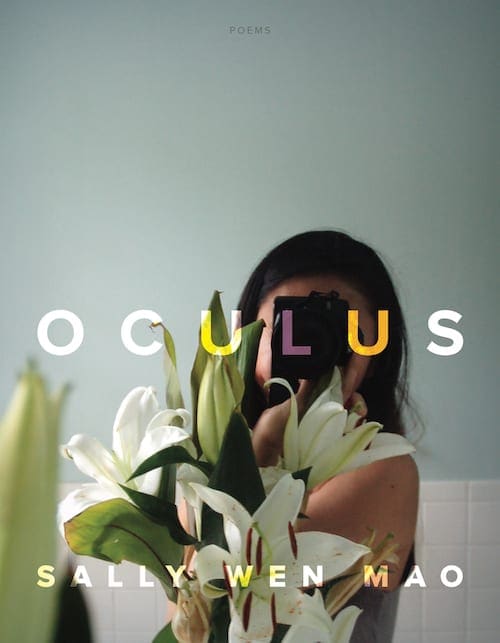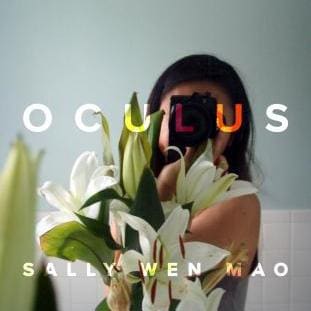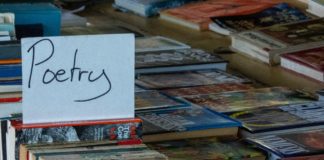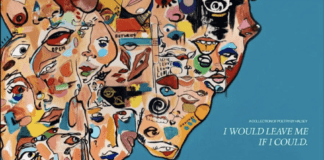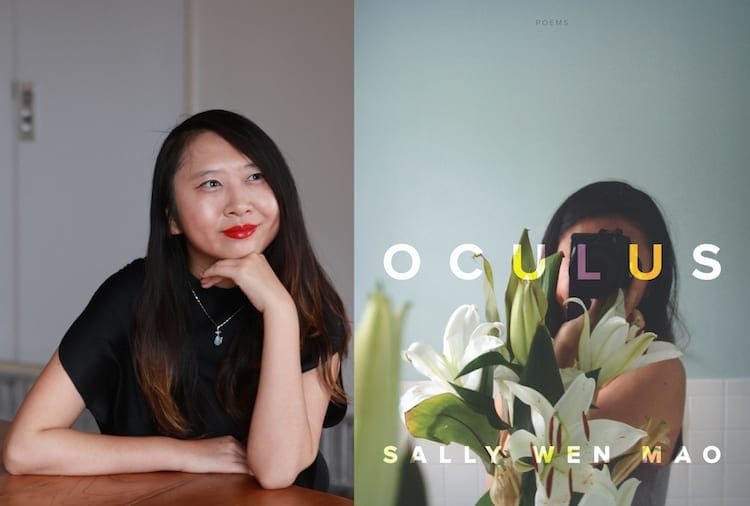
Sally Wen Mao’s Oculus is making waves and demanding attention on topics that have historically been erased.
Few poets have had the impact of Sally Wen Mao’s collection, Oculus. When we say that Mao’s poetry demands attention, we mean that in its themes and in its lyricism, you won’t be able to look away.
Mao’s collection Oculus has made a lot of waves in the medium, forcing the discussion of erasure and fetishization of her Asian heritage throughout history. She samples voices of different historic figures, weaving together an intricate tapestry of razor-sharp language, vibrant use of source material, and clever use of language to spin together her point: We must not let these histories be erased.
She spoke with The Creative Independent about the tools she uses to write, and to the Asian American Writers’ Workshop about her commanding use of gaze in the collection. The New Yorker featured Oculus, lauding it as the challenging piece of writing today’s blinkered culture needs. We couldn’t agree more. We caught up with Mao to talk about curating this collection.
little infinite: What drew you to the themes that Oculus features? What inspired you to bring seemingly disconnected and dissonant thematic poems together into this cohesive body of work? What challenges did it present?
Sally Wen Mao: The alchemy of language is its ability to bind different topics and time periods together. When considering this, I think the collection came together more because of the connections between topics than the disconnections. For example, the idea of
You speak so resonantly in the voices of others, architecting diary entries, imagining in verse their perspectives on the world. What source material do you use to dig deep into the lives of the people you build poetry around? What considerations in language and syntax do you translate into your poetry (if any, or do you just source from them the themes around which you create?)?
SWM: I used mainly scholarly research, books, and the archives for my source material. A lot of this material is available in libraries, and I was lucky enough to have the institution of the New York Public Library, one of the greatest libraries anywhere, as a resource when working on some of the poems in the book.
li: How much of yourself, and your life experience, influences and permeates the poems in Oculus?
SWM: It is hard to extricate the poet from the poems, but it is just as hard to implicate the poet in the poems.
li: You look back on history in a very intentional way, often using the first person voice of someone else to speak about seeking, finding, speaking to new generations. How much of Oculus is intended to be a
SWM: If Oculus can be read as a
“If Oculus can be read as a rally cry, then I would definitely encourage that.”
-Sally Wen Mao on her collection, Oculus
li: The lineation in this collection is a marvel in itself. What is your process for editing lineation? Does the typographic flow of a poem on the page inform your language choices? Or do you allow the words to lead the shape of the text? (Or, does each
SWM: Yes, I attempt to be intentional with lineation, paying attention to diction and meanings shifting depending on the word placement in the poem. Sometimes the words do lead to the shape of the text in that sense – but other times I let the text shape itself by experimenting and trying many different forms on the page before settling on the final one.
li: What advice do you have for young poets looking to explore themes like appropriation, suicide, technology, the whitewashing of history, etc., in their poetry? How do you think modern poets get these topics right? How do you think they get them wrong?
SWM: My advice is to get engrossed in their topics, seek out
You can follow Mao on Twitter and Instagram, and keep up with her via her site.


